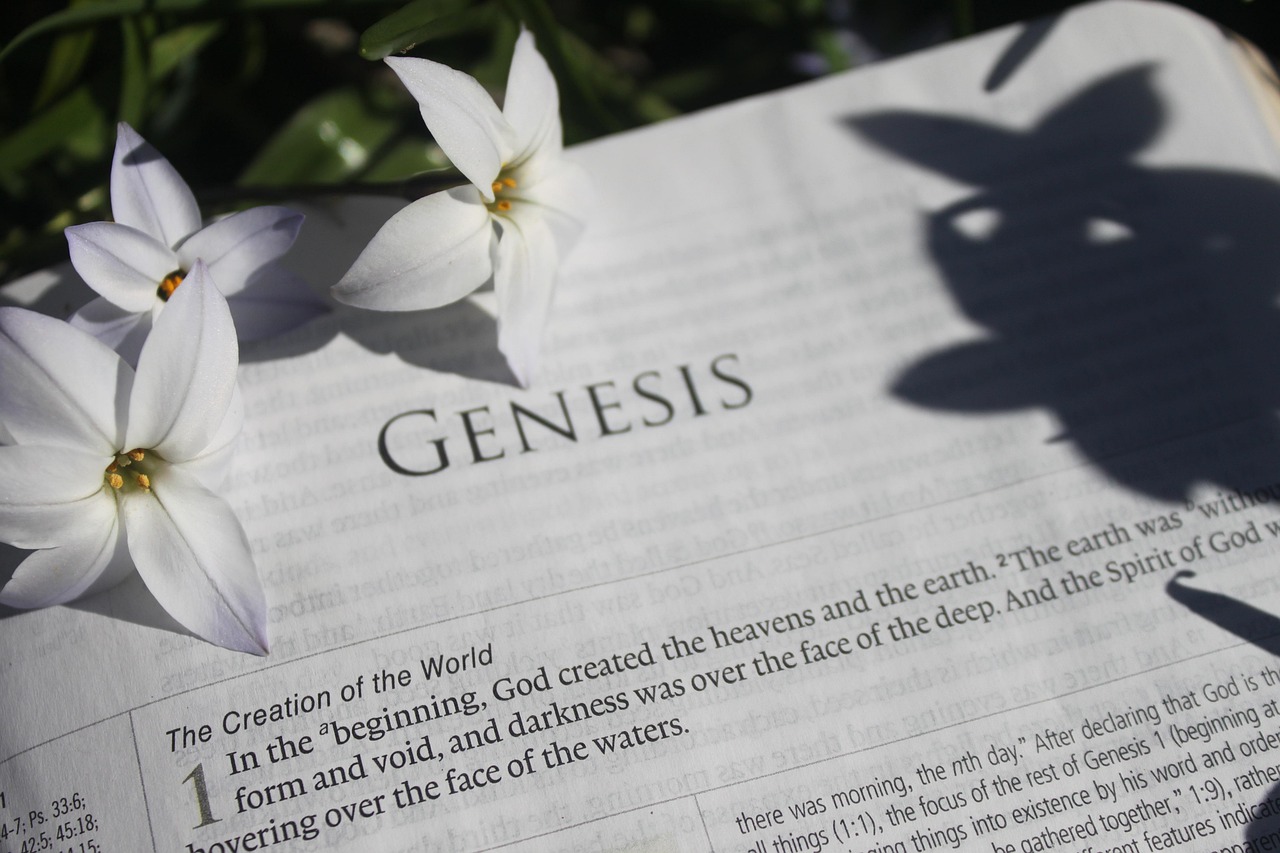Romans 8:28 is one of the most well-known and beloved verses in the Bible, often quoted in times of difficulty, suffering, or uncertainty. It offers a profound message of hope, divine purpose, and God’s sovereignty over all things. The verse states:
“And we know that in all things God works for the good of those who love him, who have been called according to his purpose.” (Romans 8:28, NIV)
At first glance, this verse appears to be a simple assurance that everything will eventually work out for good. Many people cling to it as a promise that no matter what happens, God will bring something good out of it. However, a deeper examination reveals that this verse carries a much richer theological and spiritual meaning. It is not just about temporary relief from hardships but about God’s greater plan of redemption, transformation, and eternal purpose for those who love Him.
Romans 8:28 is found in the book of Romans, a letter written by the Apostle Paul to the believers in Rome. The entire chapter of Romans 8 is a powerful exposition on the life of the Spirit, the assurance of salvation, and the unbreakable love of God. Paul emphasizes that believers are no longer condemned (Romans 8:1), that they have been given the Spirit of God (Romans 8:14-17), and that their present sufferings cannot compare to the glory that is to come (Romans 8:18). In the midst of this discussion, Romans 8:28 stands as a firm declaration that God is working behind the scenes in all circumstances, orchestrating everything for the ultimate good of His people.
One of the most important aspects of Romans 8:28 is the phrase “all things.” It reminds us that God’s providence is not limited to only the good and pleasant aspects of life. Instead, He is able to take both our joys and our struggles, our victories and our failures, and use them as part of His divine plan. This does not mean that everything that happens to us is good in itself—trials, pain, and suffering are real—but rather that God can use even the most difficult circumstances to accomplish His greater purpose.
Another key aspect of the verse is the condition: “for those who love Him, who have been called according to His purpose.” This promise is not a universal statement that applies to everyone indiscriminately. It is specifically directed to those who love God and are walking in His divine calling. This means that for those who have surrendered their lives to Him, every event, whether good or bad, is being used to shape them into the image of Christ and fulfill God’s ultimate plan.
Romans 8:28 is a verse that speaks deeply to the nature of faith, trust, and God’s sovereignty. It calls believers to rest in the knowledge that God is always at work, even when we do not understand His ways. It challenges us to see life from an eternal perspective, knowing that every trial, every challenge, and every moment of joy is woven into the grand story of God’s redemptive work.
As we explore the meaning and interpretation of Romans 8:28, we will delve into its theological significance, its application in daily life, and how it provides assurance during times of suffering. This verse is not just about personal comfort—it is a powerful declaration of God’s faithfulness and His unwavering commitment to His people. Through this study, we will discover that true faith is not about avoiding hardships, but about trusting that God’s purpose is greater than our present circumstances and that He is working all things together for the good of those who love Him.
Romans 8:28 – A Deep Spiritual Meaning and Interpretation
1. Understanding the Context of Romans 8:28
Romans 8:28 is part of Romans 8, a chapter that is often considered one of the most profound passages in Scripture. Paul, the author of Romans, is writing to Christians in Rome, encouraging them to remain faithful despite the suffering and persecution they faced.
Earlier in Romans 8:18, Paul acknowledges that “the sufferings of this present time are not worth comparing with the glory that is to be revealed in us.” He then explains that creation itself is groaning under the weight of sin and brokenness, longing for the day when God will fully restore everything.
Right before Romans 8:28, Paul talks about how the Holy Spirit helps us in our weaknesses and intercedes for us according to God’s will (Romans 8:26-27). This sets the stage for verse 28, where Paul declares that in all things, God is at work for the good of those who love Him.
Thus, Romans 8:28 is not saying that believers will have a life free of trouble, but rather that even in the midst of hardship, God is orchestrating everything for their ultimate good and His glory.
2. Meaning of Romans 8:28
a) “And we know” – The Assurance of God’s Work
Paul begins the verse with “And we know”, indicating certainty. This is not a wishful hope but a confident assurance that God is actively at work in the lives of believers.
Spiritual Meaning:
- Faith is built on knowledge of God’s promises. We don’t have to guess or doubt—we can trust in His faithfulness.
- God’s work is not random. Everything that happens in our lives is under God’s sovereign control.
- Even when we don’t understand, we can trust. God’s plan often unfolds in ways that we can’t immediately see, but we can be sure that He is working for our good.
Application:
Do we trust in God’s sovereignty, even when life seems uncertain? This verse reminds us that our faith is not based on emotions but on the unshakable truth of God’s word.
b) “In all things God works for the good” – God’s Sovereignty Over Every Circumstance
The phrase “in all things” is crucial. It means that God is working in every situation—good or bad, joyful or painful, expected or unexpected.
This does not mean that everything that happens is good. Evil, suffering, and trials exist, but God is powerful enough to use them for His divine purpose.
Spiritual Meaning:
- God is working even in our pain. Trials, hardships, and struggles are not wasted—they are being used by God to refine, strengthen, and mature us (James 1:2-4).
- Nothing is outside of God’s control. Even when we face loss, betrayal, or disappointment, God is weaving everything into His greater purpose.
- God can bring beauty out of brokenness. Just as He turned Joseph’s suffering into a position of leadership (Genesis 50:20) and turned Jesus’ crucifixion into salvation for the world, He can turn our trials into something meaningful.
Application:
When we face difficult seasons, instead of asking “Why is this happening?”, we should ask “How is God using this for His purpose?” Trust that He is working even when you can’t see it.
c) “For the good of those who love Him” – A Promise for Believers
This promise is not for everyone—it is specifically for those who love God and are living according to His purpose.
Spiritual Meaning:
- Loving God means trusting Him. If we love Him, we will trust that His plans are better than our own (Proverbs 3:5-6).
- God’s definition of “good” is different from ours. We often think of “good” as comfort, success, or an easy life. But God’s “good” is about shaping us into the image of Christ (Romans 8:29).
- This verse does not mean everything will be easy. It means that even in hardships, God is working for our ultimate spiritual growth and eternal purpose.
Application:
Are we truly seeking God’s purpose in our lives, or are we expecting Him to fit into our own plans? This verse challenges us to align our lives with His will.
d) “Who have been called according to His purpose” – God’s Greater Plan
The phrase “called according to His purpose” reminds us that God is not working randomly—He has a divine plan for each believer.
Spiritual Meaning:
- God’s calling is intentional. He has a specific purpose for each of us, and everything in our lives is working toward that divine plan.
- Our purpose is to become like Christ. Romans 8:29 explains that God’s ultimate goal is to conform us to the image of His Son.
- God is shaping us for eternity. His plans go beyond just this life—He is preparing us for a future in His eternal kingdom.
Application:
Are we living for God’s purpose or our own? We must surrender our plans to Him, knowing that His ways are always higher than ours (Isaiah 55:8-9).
3. How Romans 8:28 Applies to Us Today
Romans 8:28 is not just a comforting verse—it is a call to faith, trust, and surrender to God’s divine plan.
a) Trusting God in Uncertain Times
Life is unpredictable, but this verse reassures us that God is always at work, even when we don’t understand His ways.
Example: If you’re facing a job loss, relationship struggle, or health crisis, trust that God is still in control.
b) Finding Purpose in Pain
Suffering is not meaningless. God can use every hardship to strengthen our faith, refine our character, and bring us closer to Him.
Example: Joseph was sold into slavery, but God used his trials to save an entire nation (Genesis 50:20).
c) Surrendering to God’s Will
We must let go of our plans and trust that God’s purpose is greater than our own desires.
Example: Jesus surrendered to the Father’s will, even when it led Him to the cross (Luke 22:42).
Final Reflection: Trusting in God’s Greater Purpose
Romans 8:28 is a powerful reminder that God is in control, working all things together for our good and His glory. This verse does not promise a life free of hardship, but it guarantees that every experience, both good and bad, is part of God’s greater plan.
Key Lessons from Romans 8:28:
- God is always at work, even when we don’t see it.
- Suffering has a purpose—it shapes us into Christ’s image.
- God’s definition of “good” is eternal, not just temporary comfort.
- Trust in God’s purpose, even when life doesn’t make sense.







